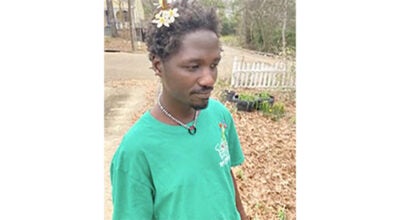Court nixes new trial request for man convicted of killing two women and unborn baby
Published 5:24 pm Saturday, June 8, 2019
The Mississippi Court of Appeals has denied a new trial for a man convicted of killing two women and the baby with whom one of the women was pregnant.
The court rejected an argument that jurors should have been allowed to consider Gregory Eugene Mootye’s alibi, The Hattiesburg American reported.
He originally said he was at his own home when the killings happened elsewhere, but two witnesses contradicted that.
In 2011, a Forrest County jury convicted Mootye on three counts of murder, and a judge gave him three life sentences.
Mootye was 22 at the time of the trial and is 30 now.
Those killed were Alesia Twillie, 49; her pregnant daughter, 26-year-old Anjelica Twillie; and the baby inside Anjelica Twillie.
Their bodies were discovered in their Hattiesburg home on Feb. 22, 2010. Forrest County Coroner Butch Benedict said the women died from gunshot and stab wounds.
Anjelica Twillie was about seven months’ pregnant, and the baby died from lack of blood flow to the placenta caused by her death.
Angelica Twillie’s other child, a 16-month-old son, was found unharmed at the crime scene.
When police arrived at the Twillie home around 4:40 a.m., the front door was ajar.
As the officers entered the home, a man rushed out. The officers struggled with the man, but he escaped. The man later was identified as Mootye.
In his appeal, Mootye said the jury was not instructed to consider his alibi, saying a witness proved he was home the morning of the murders.
That witness, Deveian Tripp, was Mootye’s roommate at the time. He later recanted and told police Mootye was not at home that morning, and he testified during the trial that Mootye had confessed to the killings.
Chekeita Pittman, who was having a sexual relationship with Mootye at the time of the killings, also testified at his trial. Pittman said she dropped Mootye off near the crime scene the morning of the slayings and said she saw him on the porch of the Twillie home as she was driving away.
The appeals court agreed with the lower court, saying that the alibi must be supported by facts for the jury to consider it.
More News






